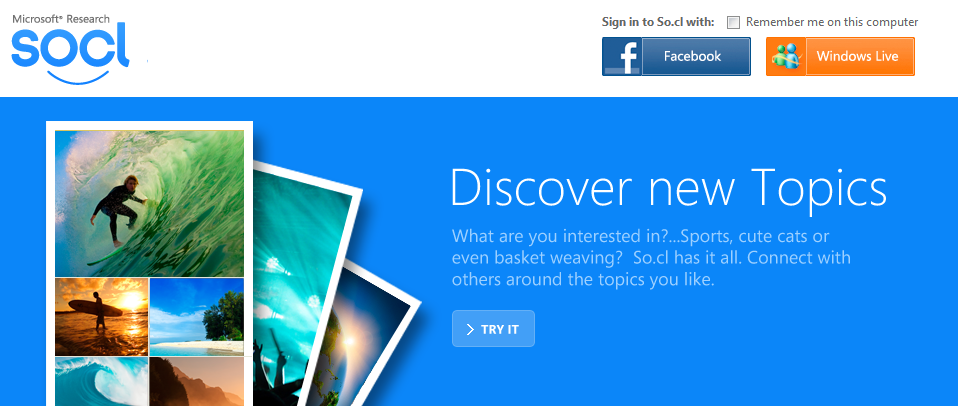Microsoft recently rolled out So.Cl, pronounced social. The network is ostensibly an effort from the company to provide users opportunities to discover new interests and trends and share them on the web. Marketers might note this social network suggests Microsoft is mirroring Google’s effort to integrate a social search layer across the web, where shared content is key to online visibility.
Users can sign-up for the service using either a Windows Live or Facebook account. The Facebook integration could make the site an especially interesting development for marketers as it encourages use through easy login and has the potential to reach the site’s 900 million users. Still, the impact of influence of So.Cl data on Facebook users looks questionable. So.Cl’s Facebook layer gives users a new outlet to share their search activity, which could help marketers drive traffic to their sites.
Among the features hailed by So.Cl to entice people to sign up is the ability to share recent searches and results with their connections. This gives users opportunities to discover interests and content that connections are searching for and finding across the web. The platform also has a new tool for video chat. Given the availability of these features on other social networks, it’s unclear what exactly Microsoft has done to differentiate its network. Moreover, recent updates to Bing SERPs effectively socialized search without being invasive. Now, rolling out So.Cl so shortly after the new SERP design launch seems to conflict with these Bing’s effort to keep search separate from social.
The new elements of Bing seemed to chart a new course for the integration of SEO and social media marketing. Essentially, users had access to both search and social data in one place without having to register for any other service, and without having social data influence standard search results.
As part of its integration of social and search, Bing has developed new possibilities for content marketing campaigns and social discovery. Brafton reported that one of Bing’s new features is a column of shared data from different web users that may offer searchers more information about their quries. The People Who Know feature aggregates data from different social networks, blogs and sites that relates to a search to help ensure that users find information they seek. Many Bing users applauded how the company offered contextual social results without manipulating search, where Google’s social data impacts result rankings. Now, So.Cl may be a strange step backwards – or in a different direction altogether – for Microsoft.




